- Abercorn Oil Co.
- Adam & Hamilton
- Airdrie Mineral Oil Co. Ltd.
- Alan Craig & Sons
- Alexander Law & Co.
- A.M. Fell & Co.
- Andrew Spencer (firm)
- Andrew Taylor (firm)
- Andrew Walker & Sons
- Annick Lodge Oil Co.
- Annick Lodge Oil Co. Ltd.
- Archibald Finnie & Sons
- Archibald Hood
- Auchinheath Chemical Company
- Avonhead Coal Company
- Bain & Carlile
- Bain & Drummond
- Bathgate Oil Co. Ltd
- Benhar Coal Co. Ltd.
- Binnend Oil Co. Ltd.
- Blackburn Mineral Oil Co.
- Blackston Mineral Oil Co.
- Bredisholm Oil Co.
- British Oil & Candle Co. Ltd.
- Broxburn Oil Co. Ltd.
- Broxburn Shale Oil Co. Ltd.
- Burntisland Oil Co. Ltd. (1881)
- Burntisland Oil Co. Ltd. (1893)
- Cairns & Co.
- Calder Oil Co.
- Caledonian Mineral Oil Co. Ltd. (1889)
- Caledonian Mineral Oil Co. Ltd. (1898)
- Caledonian Oil Co.
- Capeldrae Coal & Oil Co. Ltd.
- Cawburn Oil Co.
- Cityside Coal & Oil Co.
- Clarkson & Spence
- Clippens Oil Co. Ltd. (1878)
- Clippens Oil Co. Ltd. (1893)
- Clippens Shale Oil Co.
- Clydesdale Chemical Co.
- Coatbridge Oil Co.
- Crofthead Oil Co.
- Dalmeny Oil Co. Ltd. (1871)
- Dalmeny Oil Co. Ltd. (1896)
- Dalserf Coal, Coke & Oil Co. Ltd.
- Daniel Wylie & Son.
- David Hamilton & Co.
- Dickson Candle Co. Ltd.
- Douglas & Boag
- Dr. James Steele (firm)
- Drumgray Coal Co.
- Dundas Shale Oil Co.
- East Hermand Shale Co.
- Eldin Oil Co.
- E. Meldrum & Co.
- E.W. Binney & Co.
- E.W. Fernie & Co.
- Fraser & Meikle
- George Gray
- George Hutchison & Co.
- George Miller & Co.
- George Shand & Co.
- Glasgow Oil Co. (Broxburn) Ltd.
- Glentore Mineral Oil Co. Ltd.
- Hamilton, McCulloch & Co.
- Henry Tod (firm)
- Hermand Oil Co. Ltd (1885)
- Hermand Oil Co. Ltd (1890)
- Holmes Oil Co. Ltd.
- Inverkeithing Oilwork Co.
- James Anderson & Son
- James Gemmell
- James Greenshields & Son
- James Liddell & Co.
- James Miller
- James Miller, Son & Co.
- James Nimmo & Co.
- James Palmer & Co.
- James Ross & Co.
- James Ross & Co. (Philpstoun Works) Ltd.
- James Struthers & Co.
- James Young & Co.
- J & E Robinson
- John and James Baird
- John Baird
- John Barr & Co.
- John Miller & Co.
- John Nimmo & Son
- John Poynter & Son
- John Robertson Junior & Co.
- John Vallance & Co.
- John Watson & Sons
- John Wield (firm)
- J.P. Raeburn
- Kirkliston Oil Co.
- Lanark Oil Co. Ltd.
- Leavenseat Oil Co.
- Lester, Wyllie & Co.
- Linlithgow Oil Co. Ltd.
- Lochgelly Iron & Coal Co.
- McNaughton & Aitken
- Methil Paraffin Oil Co.
- Mid-Calder Mineral Oil Co. Ltd.
- Midlothian Mineral Oil Co. Ltd.
- Midlothian Oil Co. Ltd.
- Monkland Iron Co. Ltd.
- Monkland Oil & Coal Co. Ltd.
- Monkland Oil Refining Co. Ltd.
- Mungle & Thornton
- New Hermand Oil Co. Ltd.
- Nish, Gibb & Co.
- Nitshill & Lesmahagow Coal Co.
- North British Oil & Candle Co. Ltd.
- Oakbank Oil Co.
- Oakbank Oil Co. Ltd.
- Oakbank Oil Co. Ltd. (1868)
- Peter Drummond
- Peter Scott (firm)
- Pirnie Coal Co.
- Pumpherston Oil Co. Ltd.
- Pumpherston Shale Oil Co.
- Raebog Oil Co.
- Rankine & Mitchell
- Robert Bell & Co.
- Robert Binning & Co.
- Robert Galloway & Co.
- Robert Steuart & Co.
- Robinson, Donald & Co.
- Rowatt & Yooll
- Scottish Mineral Oil & Coal Co.Ltd.
- Scottish Oil Co. Ltd.
- Scottish Oils Ltd.
- Seafield Patent Fuel Co.
- Shettleston Oil & Chemical Co. Ltd.
- Smith Brothers & Muurling
- South Cobinshaw Oil Co.
- Stanrigg Oil Co.
- Straiton Estate Co. Ltd. (Straiton Oil Co. Ltd)
- Tarbrax Oil Co. Ltd.
- Thomas Carlile & Co.
- Thomas Hutchison
- Thomas & James Thornton
- Thomson, Lockhart & Co.
- Uddingston Oil Co.
- Uphall Mineral Oil Co.
- Uphall Mineral Oil Co. Ltd.
- Uphall Oil Co. Ltd.
- Walkinshaw Oil Co. Ltd.
- West Calder Oil Co.
- West Calder Oil Co. Ltd.
- Westfield Oil Co. Ltd.
- West Lothian Oil Co. Ltd
- West Lothian Oil Co. Ltd.
- Westwood Oil Co.
- William Black & Sons
- William Black & Sons Ltd.
- William Brown & Co.
- William Fraser & William Fraser junior
- William M'Lintock & Co.
- William Taylor & Co.
- W. & T. Kelt
Young's Paraffin Light & Mineral Oil Co. Ltd.
7 West George Street, Glasgow and 53 Bothwell Street, Glasgow
One of the earliest, largest, and certainly the most famous of the Scottish shale oil companies. In 1864, James Young bought out his partners interests on the oil business based at Bathgate chemical works, and set about construction of new works at Addiewell exploiting the rich oil shales found in the West Calder area. Before the massive complex of mines, crude oil works, refinery and workshops at Addiewell were complete, Young promoted a public company to take the enterprise forward.
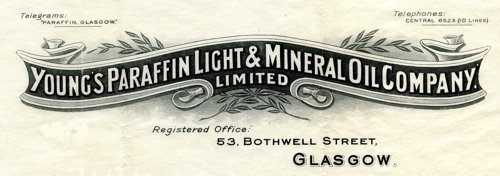
Young's Paraffin Light and Mineral Oil Company Ltd was one of the largest public companies floated to that date and had the advantages of two manufacturing bases, a national network of sales offices, and the wide public recognition of the Young's brand. James Young chaired the new company, and continued to do so until retirement in 1870.
As the most accessible shale supplies in the West Calder district became depleted, the company secured its future by extending its interests in the eastern part of the shalefield, acquiring mineral rights at Newliston, and in 1884 merging with the Uphall Oil Co. Ltd.
Despite its initial ambitions, the company struggled in its early years, some commentators attributing this to a burden of debt arising from the £400,000 paid to James Young to purchase his interest in the business.. Latterly the company was often compared to a lumbering giant, returning a solid performance but never providing investors with the returns offered by the younger, more dynamic shale oil companies.
Redwood commented:
"1866 is noted as being the year in which the much-heard-of Young's Paraffin Light and Mineral Oil Company came into existence. It was started with a capital stock of £600,000, of which £400,000 was paid to Young for his Bathgate and Addiewell Works, together with the leases of the shale-fields & c., while Young retained a large holding in the company, and acted on the board of directors. Although the company was fairly prosperous for some years, and had an output equal to about one-third of the total production of the Scotch works combined, it cannot be said to have been a financial success of late years; due, firstly, to it having been handicapped, as a large dividend payer, by the burden of carrying and excessively large capital, and secondly, being the first company of any importance, the works were necessarily fitted up with expensive apparatus and machinery that proved in a few years to be unsuitable for refining the oils so as to suit the more exacting requirements of the later-day trade."
- James Young - 1865-before 1874
- Sir John Pender GCMG, MP - 1865-1896
- John Orr Ewing - 1865-1875 (Chairman from 1865-1875) (image below)
- Professor Lyon Playfair MP - 1865-1875
- John Moffat - 1865-1881/82 (Chairman from 1875-1881/82)
- James Arthur - 1865-1885/86
- Sir James King Bt - 1865-1911 (image below)
- Hugh Bartholomew - 1865-1871
- Sir William Russell Bt - 1866-before 1884
- D.J. Kennelly - 1871-1874
- William McEwen - 1867-unknown and 1870-1893/94 (Chairman from 1881/82-1893/94)
- John P. Kidston - 1871-1877/78
- James Young Jr - before 1871-1885/86
- Hugh Brown - 1875-1906
- John Young Buchanan - 1882-1889/90
- John Fyfe - 1882-1915 (Managing Director)
- Robert Denniston - 1885-1885/86
- Peter McLagan - 1885-1892/93
- James Ross - 1885-1886/87
- Sir Matthew Arthur Bt (Lord Glenarthur) - 1886-1919
- John Young - 1886-1887/88
- Joshua Heywood Collins - 1889-1894
- Matthew Pettigrew - 1888-1899/1900
- Robert McEwan - 1894-1906
- Sir Thomas Mason - 1895-1919
- Thomas Watson - 1895-1910
- Henry Shaw MacPherson - 1900-1906
- Claud Andrew Allan - 1906-1919
- Hugh Brown Jr - 1906-1919
- Sir Thomas Ure Primrose Bt - 1911-1919
- Quintin Moore - 1916/17-1919
- Sir William Fraser (1st Baron Strathalmond) - 1919-1956 (Managing Director from 1919-1941, Chairman from 1943-1956)
- Sir Frederick William Black KCB - 1919-1922
- Sir John Buck Lloyd - 1919-1946
- Herbert Edward Nichols - 1919-1927
- John Douglas Stewart - 1919-1925
- Duncan Garrow - 1920-1926
- Robert Irving Watson - 1920-1947
- Sir John Traill Cargill Bt - 1922-1943
- Sir Hubert Bryan Heath Eves - 1926-1950
- Lord Sir John Cadman KCMG - 1925-1941 (image below)
- Robert Crichton - 1929-1954 (Managing Director from 1941-1954)
- Basil Rawdon Jackson - 1950-1957 (Chairman from 1956-1957) (image below)
- John Martin Caldwell - 1952-1962 (Managing Director from 1953-1962)
- Hon. William Fraser (2nd Baron Strathalmond) - 1954-1956 and 1969-1971
- Harold Ernest Snow CBE - 1954-1954 and 1957-1961 (image below)
- Sir Neville Archibald Gass KBE - 1956-1960 (Chairman from 1957-1960) (image below)
- John Paterson - 1956-1963
- Duncan Anderson - 1957-1961
- Hon. Maurice Richard Bridgeman CBE - 1960-1969 (Chairman from 1960-1969)(image below)
- Sir Arthur Eric Courtney Drake CBE - 1962-1971 (image below)
- John Mellor Pattinson CBE - 1962-1965 (image below)
- Maurice Alfred Lister Banks - 1962-1967
- Dr Willison Bryce Peutherer - 1962-1969 (image below)
- Robert Young Gilchrist - 1963-1965
- Alister Frederick Down OBE - 1969-1971
- Robert Bryan Dummett - 1969-1971
- Fraser Murray Cook - 1969-after 1976
- D.W.K. Barker - 1971-1971/72
- Alan Murray Robertson - 1971
- David Bruce Robertson - 1971
- David Lessels Williamson - 1971-1972/73
- F.C.K. Cuthbert - 1972/73
- D.G.Milne - before 1975
- I.R. Walker - before 1975- (Chairman before 1980-1983/84)
- J.M. MacNeill - before 1976/77
- C.E. Neave - before 1977-
- J.W. Bushby - before 1977-
- R.A.E. Mennie - before 1977-
- M.A.J. Shaw - before 1978-
- V.E.S. Thomas - before 1978-
- P. Banks - before 1979-
- I.R. Walker - before 1980-
- C.D. Peters - before 1981-
- H. Burnham - before 1981-
- P.W. Shaw - before 1982-
- B.P. Hughes - before 1982-
- Dr E.S. Luxon - before 1983-
- Dr J.M. Key - before 1984-
- W. Kennedy - before 1984-
- J.M. Stream - before 1984-
- Terence Michael Lazenby - before 1985- (image below)
- Denis John Christopher Dunstone - before 1986- (Chairman before 1986-)
- Keith Blakey Winpenny - before 1987- (image below)
Directors
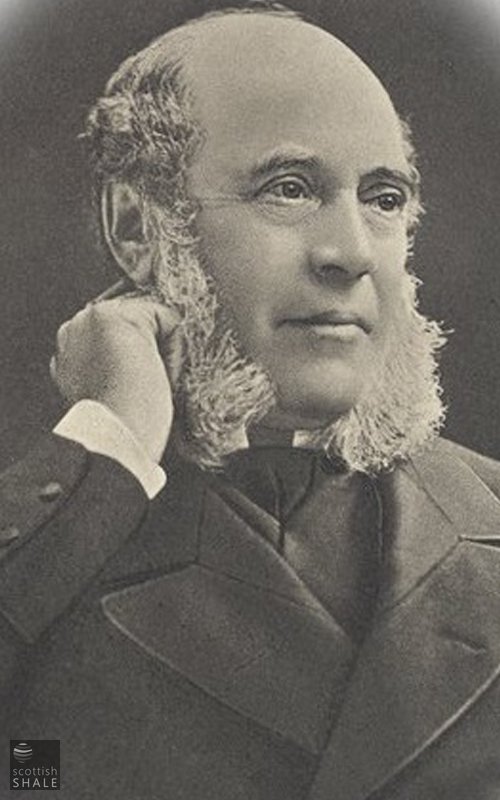
John Orr Ewing
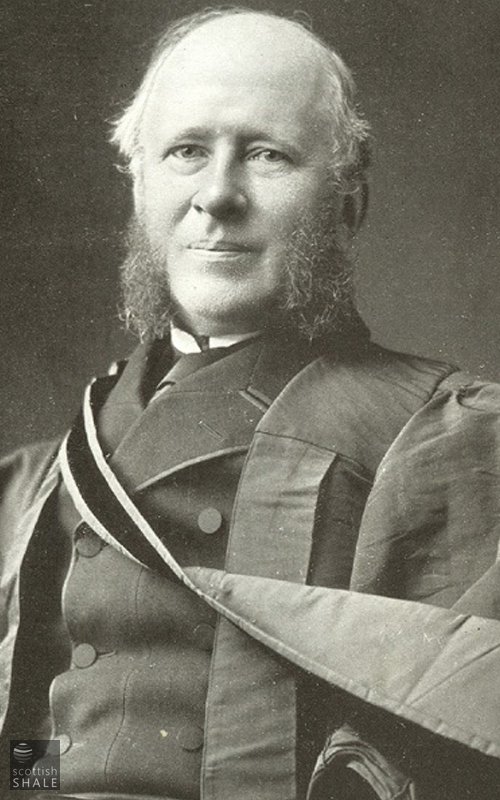
Sir James King Bt
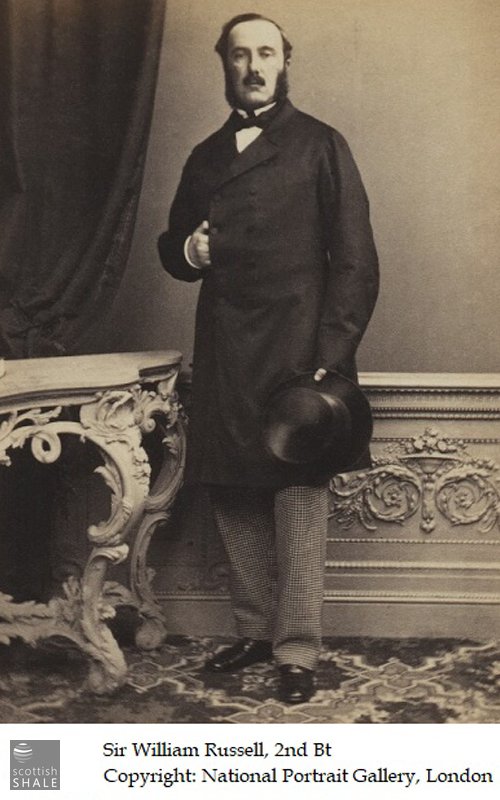
Sir William Russell Bt
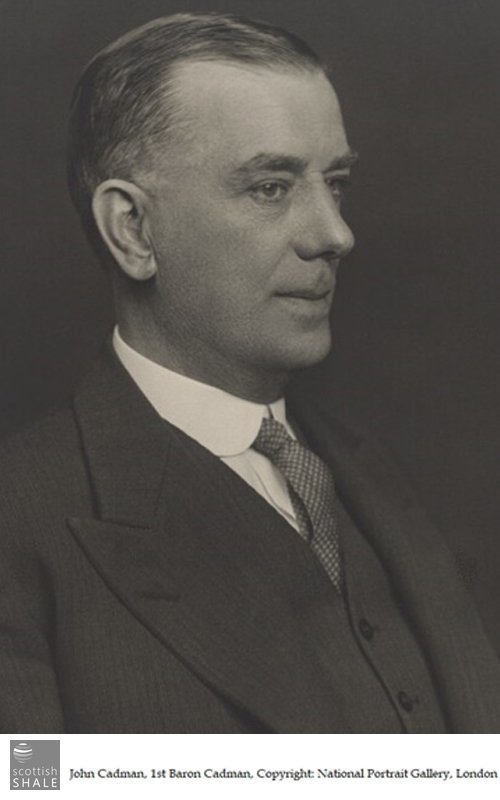
Lord Sir John Cadman KCMG
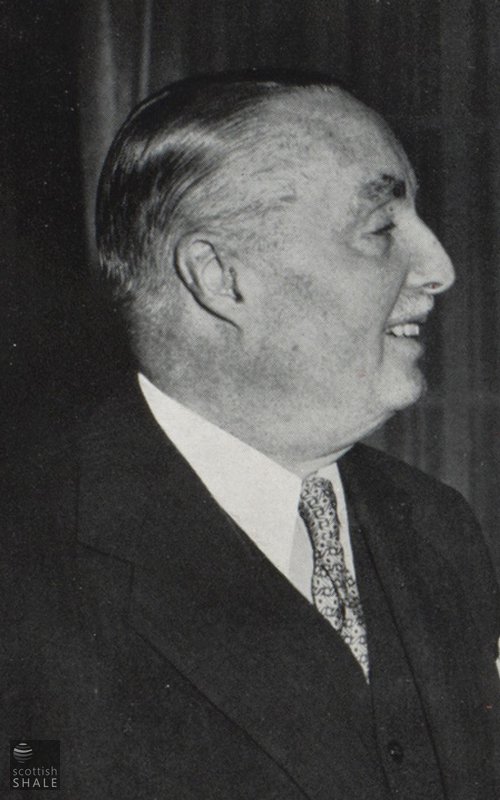
Basil Rawdon Jackson
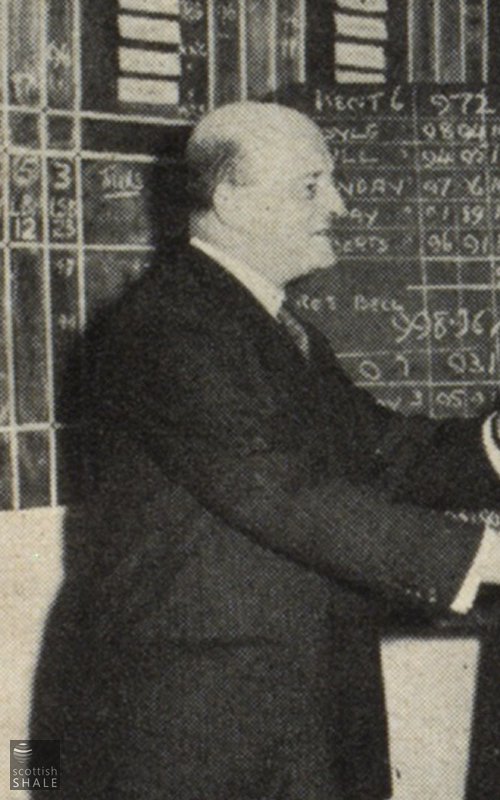
Harold Ernest Snow CBE
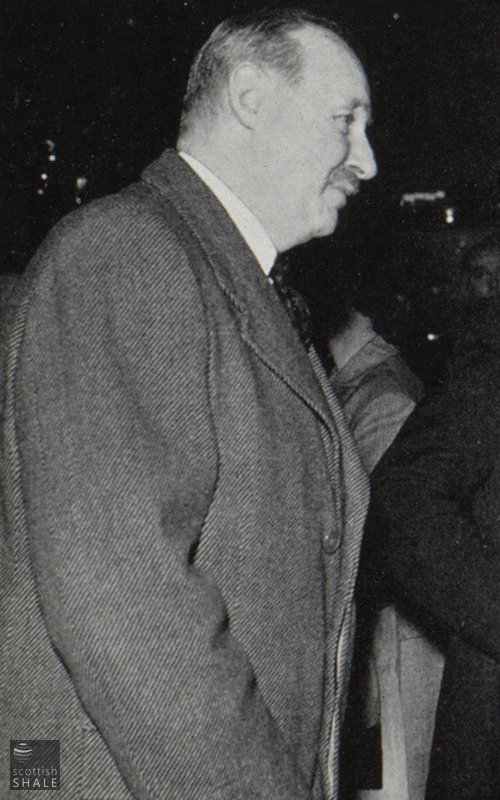
Sir Neville Archibald Gass KBE
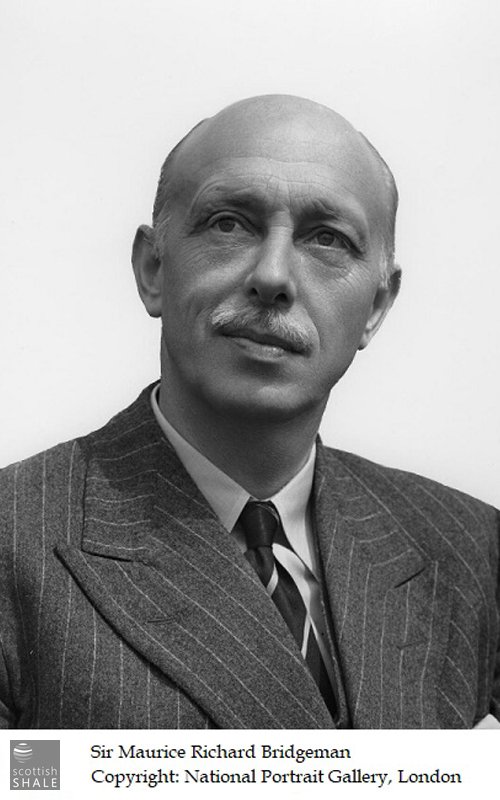
Hon. Maurice Richard Bridgeman CBE
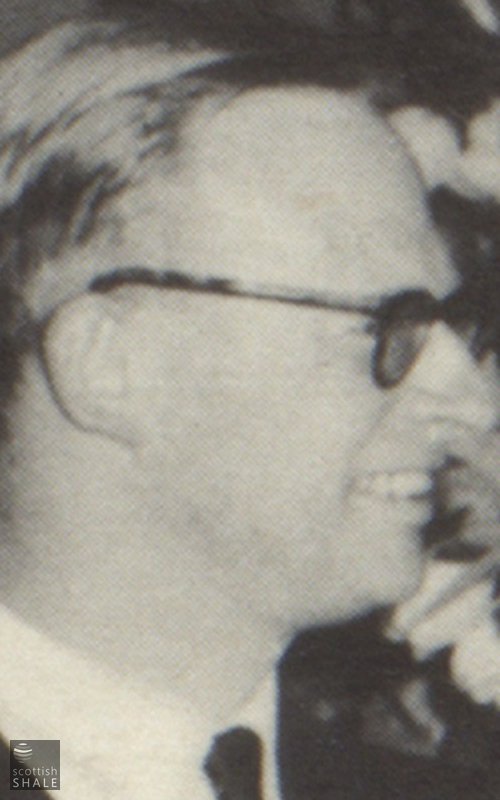
Sir Arthur Eric Courtney Drake CBE
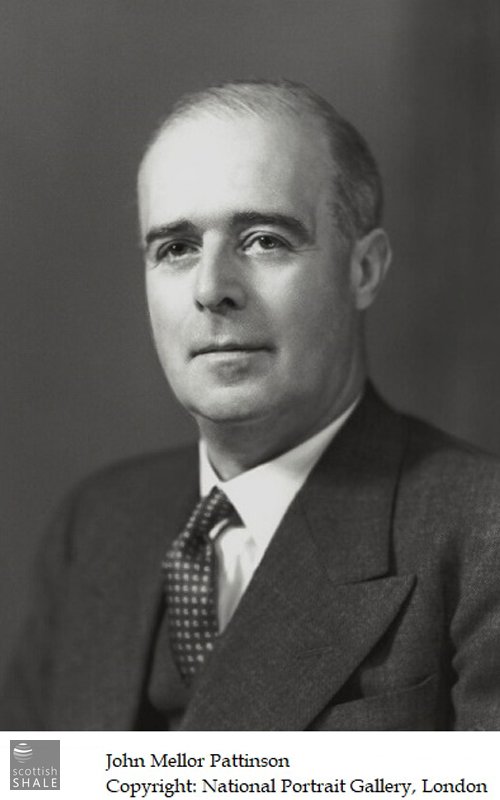
John Mellor Pattinson CBE
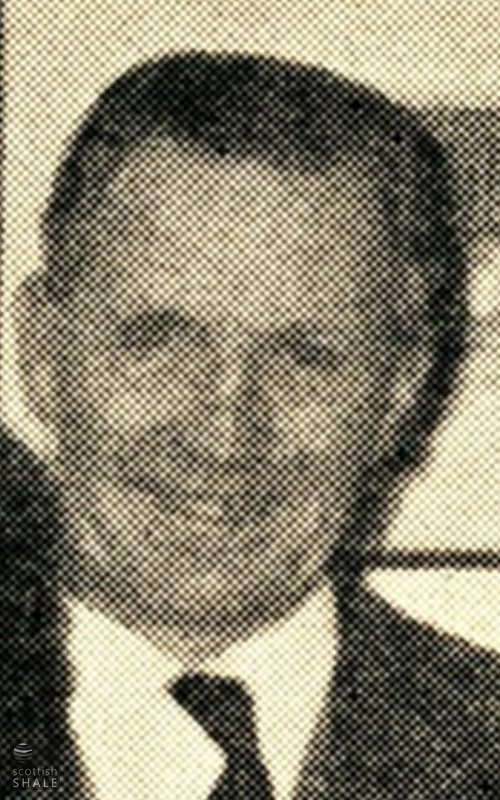
Dr Willison Bryce Peutherer

Terence Michael Lazenby
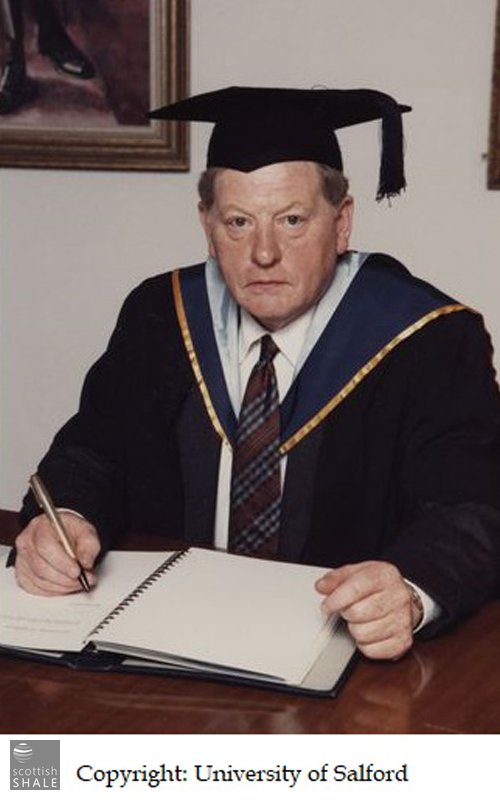
Keith Blakey Winpenny
General Managers
- John Fyfe 1873-
- D.J. Kennelly - before 1873-1873
- Thomas Wylie Steven - 1915/16-1919/20
Secretaries
Information is patchy until 1884:
- Alexander Moore - 1865-before 1884
- Onesiphorus Tyndalle Bruce Gardner - before 1869-1874/75
- William Love - 1874/75-1880/81
- Charles Mann – 1880/81-1900/01
- Thomas Wylie Steven – 1900/1901-1914/15
- Robert Wilson Meikle – 1916-1945
- James Ewing Bryce Martin – 1946-1952
- Robert Young Gilchrist – 1952-1963/64
- John McWilliam Brodie – 1963-1973/74
- Kenneth Harwood Parke – 1966/67-1973/74
- David A. Godwin Sarre – 1972/73
- Alexander Wilson McGavin – around 1976
- 85 Bucklersoury, London
- 45 Dantzig Street, Manchester
- Victoria Street, Bristol
- 6 Humber Street, Hull
- 1 Newgate Street, Newcastle-on-Tyne
- Lochrin, Edinburgh
- 83 Market Street, Aberdeen
- 20 Talbot Street, Dublin
- 84 Waring Street,. Belfast
Property
Sales office (as listed in Slater's Royal National Commercial Directory of Scotland for 1878)
- 1866 - 5%
- 1867 - 0
- 1869 - 5%
- 1870 - 10%
- 1871 - 7.5%
- 1872 - 10%
- 1873 - 6.5%
- 1874 - 7.5%
- 1875 - 5%
- 1876 - 9%
- 1877 - 17.5%
- 1878 - 17.5%
- 1879 - 12.5%
- 1880 - 8%
- 1881 - 5%
- 1882 - 6%
- 1883 - 4%
- 1884 - 6%
- 1885 - 8%
- 1886 - 8%
- 1887 - 0
- 1888 - 0
- 1889 - 7.5%
- 1890 - 7.5%
- 1891 - 9%
- 1892-1900 - 0
- 1901 - 3%
- 1902 - 2.5%
- 1903 - 3%
- 1904 - 5%
- 1905 - 6%
- 1906 - 6%
- 1907 - 6%
- 1908 - 7%
- 1909 - 0
- 1910 - 4.5%
- 1911 - 5%
- 1912 - 0
- 1913 - 5%
- 1914 - 5%
- 1915 - 0
- 1916 - 0
- 1917 - 5%
- 1918 - 6%
- 1919 - 6%
- 1920 - 2.5%
- 1921 - 0
- 1922 - 0
- 1923 - 3%
- 1924-1936 - 0
- 1937 - 10%
- 1938 - 10%
- 1939 - 7.5%
- 1940 - 25%
- 1941 - 12.5%
- 1942 - 4s per share
- 1943 - 4s per share
- 1944 - 0
- 1945 onwards - 0
Information is patchy until 1884:
Marketing
Trademarks
Particulars of trademarks registered by Young's Paraffin Light & Mineral Oil Company Ltd:

| Trademark Title | Registration Number | Date of Registration | Goods Specified |
|---|---|---|---|
| Youngs Patent Paraffin | 3394 (Class 4) | 4th March 1876 | Paraffin wax used for manufacturing purposes |

| rademark Title | Registration Number | Date of Registration | Goods Specified |
|---|---|---|---|
| Youngs Patent Paraffin | 3394 (Class 47) | 4th March 1876 | Crude paraffin wax used for illuminating purposes and refined paraffin wax used for illuminating purposes |

| Trademark Title | Registration Number | Date of Registration | Goods Specified |
|---|---|---|---|
| Youngs Patent Paraffin Oil | 3395 | 4th March 1876 | Burning paraffin oil and mineral lubricating oil |

| Trademark Title | Registration Number | Date of Registration | Goods Specified |
|---|---|---|---|
| Youngs Paraffin Candles | 28728 | 25th August 1882 | Candles |
Letterheads
- Young's Paraffin Light and Mineral Oil Co. Ltd. Secretary's Minute Book 1865-1868. BP archive 213916 (pdf file)
- Young's Paraffin Light and Mineral Oil Co. Ltd. Shareholders' Minute Book 1884-1909. BP archive 213886 (pdf file)
- Young's Paraffin Light and Mineral Oil Co. Ltd. Shareholders' Minute Book 1913-1987. BP archive 213885 (pdf file)
- Young's Paraffin Light and Mineral Oil Co. Ltd. Minute Book 1917-1919. BP archive 213927 (pdf file)
- Young's Paraffin Light and Mineral Oil Co. Ltd. Private Minute Book 1881-1919. BP archive 213929 (pdf file)
Records
Public meetings of Young's Paraffin Light & Mineral Oil Co. Ltd
1876 Annual General Meeting
YOUNG'S PARAFFIN LIGHT & MINERAL OIL COMPANY (LIMITED). The report prepared by the directors to be submitted to the twelfth general meeting of the company, to be held on Friday the 16th June, states: - The balance at credit of the profit and loss account is £43,814 3s, out of which it is proposed to declare a dividend at the rate of 9 per cent. Per annum, payable in equal proportions on 23nd June and 22nd December, 1876, less income-tax. This dividend would absorb £43,706 5s, leaving £2,017 18s to be carried forward to the current year. The works and plant of the company have been kept in a most efficient state, and the sum of £13,285 13s 8d has been expended on their maintenance and charged to revenue. The amount written off for capital depreciation during the year has been £20,362 18s 6d. The market prices for the chief products of the company having been lower during the past reason than in any year since its formation, your directors consider that the financial results are gratifying. The stocks of materials on hand are larger than those of the previous year, but they have all been valued at very moderate prices. The increase is chiefly in shale, which it was considered desirable to store in quantity at the pits.
The capital expenditure during the year amounts to £15,389 11s 11d, and consists of the following items, viz:- Cost of and laying 6-inch water pipes from Addiewell to Bathgate, £3216 10s 11d; boilers, foundations, and buildings for naphtha and gasoline machinery, £1027 16s 1d; works for purification of streams at Addiewell and Bathgate, £4530 0s 8d; rolling stock, new tanks, works, &c., £2794 13s; sinking to lower or Broxburn shales, &c., £3820 11s 3d – total, £15,389 11s 11d. The amount expended has been larger than was anticipated at the commencement of the year, but, excepting the streams purification measures, the new works will be productive of very great benefit to the company, either by further increasing the percentage of products, or by diminishing the cost of working.
The capital expenditure during the current year is estimated as follows :- Rolling stock, tanks, cranes, new works, &co., £6500; naphtha and gasoline machinery, £1300; streams purification, £1700; machinery for working Broxburn shales, £1200 – total, £10,700. In September last an agreement was entered into with the riparian proprietors in the neighbourhood of the river Avon and its tributaries, whereby the company, to avoid the expense of an action of declarator and interdict in the Court of Session, undertook to construct at Bathgate remedial works, similar to those which are in operation at Addiewell, for averting the pollution of streams. The cost at both works has been considerable, already amounting to £6346 15s 11d, with a probable further expenditure of £1700; but the pollution from shale products is so difficult to be dealt with, and the area of ground occupied by the works so extensive – viz., 125 acres – that the outlay was, in the circumstances, unavoidable.
The west field of Westwood, near West Calder, consisting of about 100 acres of workable shale, has been leased, for 21 years, from Captain Steuart. The lower or Broxburn shales have been proved during the past year, and are now being worked at two places. Your directors are glad to be able to announce that the yield per ton from these shales is fair, and the cost of working is expected to be reasonable. At the present rate of consumption, the quantity of shale now possessed or leased by the company is equivalent to about forty years' supply. It was considered prudent to insure, to a much larger extent than heretofore, the works, stocks, &c., against fire, and this has been effected. The amount now insured with public offices is £134,253, and the company's own fund amounts to £7233 6s 1d. As the buildings, stocks, and plant are distributed over a very wide area, the provision now made will render still more improbable any serious loss from fire being sustained by the company. The directors retiring at this time are Mr James Arthur, Mr William M'Ewen, and Mr John Pender, M.P. They are eligible for re-election, and are willing to act again if re-appointed.
The Glasgow Herald, 6th June 1876
.......
1879 Annual General Meeting
YOUNG'S PARAFFIN LIGHT & MINERAL OIL COMPANY (LIMITED). The annual report by the directors of this Company to the fifteen general meeting , to be held on the 16th inst In Glasgow states that the balance at the credit of profit and loss account is £63,553, 63. 8d., out of which it is proposed to declare a dividend at the rate of 124 cent. per annum, payable in equal proportions on 20th June and l9th December l879, less Income-tax. This dividend will absorb £60,828, 2 s. 6 d., and leave £2725, 4s. 2d. to be carried forward to the current year. The works, pits ^ and plant of the Company have not only been efficiently maintained, but numerous improvements have been carried out, the cost being debited to revenue. The amount thus expended for repairs, renewals, and improved stills, condensers, and machinery generally, has been £20,817, 2s. l0 d., while the amount written off the capital account for depreciation has been £20,877, 11s. 6d. The daily production of crude petroleum in America during the year ending 30th April 1879 has averaged 43,809 barrels as compared with 39,240 barrels and 26,535 barrels for the two previous years respectively. One result of this increased yield is that the prices of mineral oils in this country have been lowered beyond those of any former period. Depression of trade has caused other products of the Company to be reduced in value. The operations of the works were much retarded by an inadequate supply of water during the drought of last summer, and again during the severe and protracted winter in consequence of which the maximum production and profit were not obtained. To prevent the recurrence of this, pipes have now been laid from the Addiewell works to one of the Company's pits, whereby an abundant auxiliary supply of water can be had, when necessary, in future. The capital expenditure for the past year, which was estimated at £14,500, has amounted to £14,630, 18s. 3d. For the current year the following is the estimate, viz.: —Additional tanks, presses, and machinery, £3600; sulphuric acid apparatus, £1000; houses for crystal oil, &c, £1000, loading bank, hutch roads, &c., £1000, streams purification, £ 2000, redemption of superiority casualties, £900, sundries, £1000; pits and machinery, £350; new lamp work, Birmingham, £10,600. The lamp work at Birmingham mentioned is being erected in place of the premises now rented In Edinburgh.
The Scotsman, 3rd June 1879
.......
1882 Annual General Meeting
The eighteenth annual report by the directors of YOUNG'S PARAFFIN LIGHT AND MINERAL OIL COMPANY (LIMITED) was issued on Saturday. It is as follows :- The balance at the credit of profit and loss account is £34,034 4s 10d, from which there has been deducted £11,020 6s 3d for capital depreciation, also £3000 for the Henderson retorts, and £7779 10s 6d for reductions in values of products, leaving the sum of £30,234 2s 1d, out of which it is proposed to declare a dividend at the rate of 6 per cent per annum, payable in equal proportions on 23d June and 22d December, 1832, less income-tax. This dividend will absorb £29,197 10s, leaving £1036 12s 1d to be carried forward. The benefits arising from improved percentages of products, diminished costs, and other causes, as compared with the previous year, have announced to £25,070, and these, it is believed, will be materially increased during the present year. Unfortunately, the gain has been counteracted by lower prices for solid paraffin and candles, from which a lesser profit of £27,110 has been realised, although larger quantities were sold and delivered. There is now, however, an improvement in candles; sulphate of ammonia remains firm; lubricating oils have latterly been advancing; so that if burning oils were to recover, even slightly, from their present extreme depression, better results might safely be relied upon in future.
Effect has been given to the wishes of the shareholders, as expressed at last annual meeting, by diminishing, to a moderate extent, the capital depreciation. The increase in dividend which would have been derived from this has, however, been prevented by the necessity there was of reducing the values of products, owing to their fail in prices. So much has now been done in this direction, that no further appreciable diminution is likely to be required.
The vital question of improved retorts has been engaging earnest attention during the past year, and although it cannot be affirmed that the best retort has yet been devised, still, it has been clearly demonstrated that, in the interests of the company, the whole of their vertical retorts must be abolished. It has accordingly been arranged that during the present summer 193 additional Henderson retorts be erected, in lieu of 150 vertical retorts. The experience which the company have had of these now in use justifies the immediate erection of this additional number; and it is contemplated to supersede the remainder of the vertical retorts in the following year, as so to secure without delay the improved results on the company's entire consumpt of shale. There have been broken up at Bathgate 128 vertical retorts, capable of distilling 22 cwt. of shale daily, equal to 140 tons; and at Addiewell 150 vertical retorts, of 27 cwt., equal to 200 tons – being a total of 340 tons. In 1880 there were erected at Addiewell 288 Henderson retorts, of 25 cwt., equal to 360 tons; and there are under contract at present 192 retorts of the same description, equal to 240 tons – together, 600 tons; showing a surplus daily distilling power of 260 tons. It is recommended that an amount equivalent to what has been broken up be charged to revenue, spread over five years, and that the surplus, estimated at £15,400, be debited to capital. The mode mentioned in last report would have tended to prevent the speedy adoption of improved retorts, which are an absolute necessity in the present condition of the mineral oil trade.
The plan now submitted is perfectly fair to revenue, particularly as from the improved retorts increased per centages and values of products are obtained. The charge for the past year has been in conformity with the mode. The estimated capital outlay was £19,000, while the actual expenditure has been £19,012 1s 4d. For the current year the following is the estimate :- Pits and machinery, £7000; refrigerators and stock tanks, £6500; proportion to capital of new retorts, £19,466; total, £32,966. The amount at the credit of the company's fire insurance fund is £7215 16s 1d. In future it is proposed to designate it the "Fire and Accident Insurance Fund," and to credit the sum of £1000 annually thereto. A recent fire at Addiewell, whereby a direct loss was sustained and the operations of the works restricted for a time, and the result of an action under the Employers' Liability Act, make the course now recommended an advisable one. The directors returning at this time are Mr James Arthur, Mr William M'Ewan, and Mr John Pender, M.P. They are re-eligible, and, if again appointed, are willing to act. It is recommended that Mr John Young Buchanan, Edinburgh, be elected by the shareholders to a seat at the board, his scientific attainments rendering him well fitted for the position. In consideration of the valuable services of Mr Fyfe, their general manager for the last nine years, the directors recommend that he should be elected to a seat at the board, with the view of him being appointed by their managing director.
The Glasgow Herald, 5th June 1882
.......
1885 Annual General Meeting
YOUNG'S PARAFFIN OIL COMPANY. The annual meeting of the shareholders of Young's Paraffin Oil Company was held yesterday afternoon in the Merchants' Hall – Mr William M'Ewan presiding. The notice calling the meeting having been read, the report by the directors, which has already been published, was held as read. The Chairman afterwards said a copy of the report having been sent to each shareholder, I presume it may be held as read. The gross credit balance is £72,952, against £51,792 last year, and the amount proposed for distribution is £48,450, against £31,577 in the previous year. With lower aggregate prices than have ever before prevailed in the mineral oil trade, and with many improvements not completed until late in the financial year, the result is, I think, satisfactory. Had the prices with which the year opened been maintained throughout the dividend would have been higher; but, unfortunately, heavy oil, scale, candles, and sulphate of ammonia fell away during its currency. The fact that the increased dividend arises wholly from improvements at the works and mines adds value to the announcement, because once these are effected, they remain a permanent benefit.
I have had the curiosity to have a statement prepared, which shows that by applying last year's quantities and costs to the prices obtained for our products twelve years ago there would have been a gross profit of £548,990. I wish so erroneous inference to be drawn from this, as the prices of that period may not occur again, although they were then considered low; but it indicates in a striking manner the progress which has taken place in the interval. I am happy to be able to add that progress promises to continue, as I have before me an abstract of further benefits for the current year, the amount of which I refrain from mentioning, but it is in excess of any former year. I think it my duty to tell the shareholders this, to show that the company is not standing still, and that if lower prices for some of the products prevail, we are doing our very best to meet them, and when the higher prices come which we hope for we will then reap the greater advantage. Meanwhile our aim is so to improve the company's business and position that even in dull times fair profits may be realised.
The directors recently visited the various works of the company, and were happy to observe at all of them numerous evidences of activity and advancement. At Addiewell we found the work in thorough order, all its plant effective, and turning out its maximum quantity. It was satisfactory to notice that the vertical retorts were entirely cleared away, and that we had seen the last of that drag. At Bathgate we were pleased to witness many improvements in operation and the production increased. At Hopetoun the vertical retorts were stopped last month; and now the company's retorts plant is all of the most modern and approved description, consisting entirely of the Pentland and Henderson retorts, the two best which have been yet devised. At Uphall the work has been, as the report states, practically reconstructed. The outlay therefore has been considerable, but that work has been converted from one which, when we acquired it, was yielding little or no profit into one now contributing its full share to our improved position. Its efficiency has been completed by the erection of a paraffin refinery for supplying ourselves and others with candle material instead of selling scale, as was formerly done. At Newliston Mine the machinery and relative equipment are unusually strong and serviceable; and the electric light has been adopted to admit of the proper examination of the shale at the surface during the darkness of winter. The output at present is about 300 tons per day, but will in a week or two be 400 tons. When the working faces are fully opened up it can easily be further increased, as the mining plant is capable of dealing with 600 tons per day. Such a large accession of valuable shale, taking the place of a similar quantity of the comparatively unremunerative shales from the districts around Addiewell and West Calder, will have an important bearing upon the future of the company. (Applause.)
In one respect it is a drawback having these scattered and isolated works. If they were all concentrated, there would be a saving in salaries and wages from having fewer managers, chemists, and foremen, and a smaller staff generally. On the other hand, we have counteracting advantages. There is a competition in regard to qualities and costs of products which is healthy, and which, I am happy to say, is carried on with harmony and good feeling. There are more minds for devising improvements; and when a discovery is found to be a benefit at one work it is immediately adopted at the others. The risk of loss from fire, too, is much less from there being three refining works than if all were combined in one. I may mention that we originated at Uphall, as we have long had in operation at Addiewell and Bathgate, a fire brigade who practice for an hour once a week, to make certain that all extinguishing appliances are in perfect order. We have during the past year accomplished much of our own accord in the way of further lessening danger from fire, and have also carried out suggestions made by skilled insurance managers, who express themselves satisfied with what has been done. Our insurance specification, now revised so as to include Uphall, amounts to £338,909, and has been accepted by six influential companies.
While we receive periodical returns from our mining managers as to the shale territory owned or leased by the company, we thought, after acquiring Uphall and Newliston, it would be prudent to have a report from an independent miner engineer. We accordingly employed Mr David Rankine, of Glasgow, and after a considerable time spent in visiting the pits, mines, and mineral fields, and examining the plans of the entire workings, he has sent in a most satisfactory statement, confirming our estimate of the mineral resources of the company. Mr Rankine is well qualified for such a task by professional experience and knowledge of the district, and being an exceedingly cautious mining engineer, he has been at great pains to allow for all possible contingencies. In framing his estimate he has struck out what he thinks has not been sufficiently proved, and also all seams not at present considered profitable to work, although if better times arise they might be reinstated as valuable assets. After these full deductions his figures show that the company has sufficient shale to last for thirty years at the present rate of output, nearly two-thirds of which is either commanded by present fittings, or only requires inexpensive additions thereto. There are also large portions of territory owned or leased by the company not yet proved, nor is it necessary to incur the expense of doing so in the meantime.
With respect to petroleum, it is satisfactory to find that its position has at last been altered. For the first time in seven years the stock in America is being reduced, and there is one important fact connected with it which I will explain. In the early days of the petroleum industry, what were then considered large deposits were discovered, but which, with the present consumption, would have lasted a very short period. Again, within the last two or three years there have been districts which threatened to yield considerable supplies, and did so temporarily, but they ultimately proved to be mere pools, draining away in a few months. During the whole history of petroleum, extending over twenty years, there has been only one field combining great magnitude and duration, and that is the territory known as the Bradford. It was this which caused the collapse of prices in 1877, created the enormous stocks in America, and rendered so many improvements and economies necessary on our part. It is gratifying to us as shareholders to know that its daily contribution, which at one time swelled to 80,000 barrels, has been dwindling rapidly of late, and is now down to 27,000 barrels. As there has been only one Bradford field discovered in twenty years, let us hope that the production in future will be from less prolific and less sustained sources; in which case not only would the price of burning oil improve in this country, but, what would be almost as important, the supplies of scale and heavy oil from America would ultimately be lessened. When I add that each penny per gallon of advance on the price of our burning oil is equivalent to £25,000 per annum, the shareholders will more readily understand the benefits to be derived from a diminution in the yield of petroleum which has been exciting some attention of late, and that is its use as liquid fuel. On land it is too expensive to compete successfully with coal, but at sea, where so many other circumstances come into play, there may be a future for its use. It is compressed into much smaller compass, leaving greater stowage space for cargo; the boilers can be fed so easily and with so little refuse, that stokers, of whom large vessels employ an immense number, could be dispensed with, and the expense of taking coal on board and feeding the furnace would be entirely saved. For my own part, I think the day may not be distant when there will be oil reservoirs at all the Eastern coaling stations to supply liquid fuel. Admiral Selwyn in a recent lecture mentioned the important fact that while a Russian man-of-war could with oil run for 24 days before requiring to replenish its fuel a British man-of-war could only steam six days without resorting to a coaling station. Russia is setting an example in this respect, as nearly all the steam vessels which sail on the Caspian, the Volga, and the Black Sea are supplied with oil. If America and Great Britain were following this example, the outlay for crude petroleum, and its effect upon our industry, would be remarkable.
With these observations, I beg to propose the first resolution, viz :- "That the report of the directors and statement of accounts for the year ending 30th April, 1885, be approved of, and that a dividend of 8 per cent be declared, payable in equal proportions, on 24th June and 23d December, 1885, less income-tax." Mr James King of Levernholm seconded the resolution, which was unanimously adopted. On the motion of the chairman, the retiring directors, Messrs Hugh Brown, James King, and John Fyfe, were re-elected directors of the company. On the motion of Mr M'Clure, the remuneration of the directors was increased from £1300 to £2000, in recognition of the increased labour and responsibility resulting from the acquisition of Uphall; and on the motion of Mr Guthrie, Mr Alex Moore was re-elected auditor of the company, his fee being increased from £150 to £200. A vote of thanks to the chairman for presiding brought the meeting to a close.
The Glasgow Herald, 18th June 1885
.......
1888 Annual General Meeting
The directors of YOUNG'S PARAFFIN LIGHT AND MINERAL OIL COMPANY (LIMITED) issued the report for the past year last night. It states:- The directors submit herewith a statement of the company's accounts, made up to 30th April, 1888, in terms of the articles of association. The Court of Session on the 18th October last sanctioned the scheme of reduction of capital by which the sum of £427,500 was to be applied in reducing the valuations of the company's assets, and in meeting the balance at debit of profit and loss account. The present statement is made up after giving effect to the alterations in the accounts authorised by that scheme. In applying the £427,500, the directors not only made a most material reduction on the valuations of the fixed property of the company, but they availed themselves of the opportunity afforded of diminishing certain accounts, and of extinguishing others which had hitherto entailed an annual charge upon profits. They also largely reduced in value the stock-in-trade held at last balance, and the stock in the balance-sheet now submitted is entered on so low a basis that, so far as can be seen, no reduction thereon is likely to be necessary in future. The same principles have been applied to oils and paraffin in process. The prices now current are considerably higher than the new valuations. Giving effect to the reduction authorised by the court, the result of the company's operations has been that, after paying and providing for interest both on the mortgages and on the convertible debenture stock, there is a balance of £670 18s 6d to be carried forward. Since the completion of the scheme of reduction of capital the progress of the company has been very encouraging. The causes of the improvement are various, such as stoppage of the Bathgate Works; reduced salaries, wages, and costs generally; improved processes; abatements in freights, rates, and taxes; landlords' concessions.
Addiewell and Uphall have, by transference of plant from Bathgate, been rendered capable of refining the same quantity of crude oil as was formerly refined at the three works, whereby a very large saving is being effected. The new financial year opens with good prospects. The principle products are higher in price, and as contracts at unremunerative figures are now nearly all implemented, the company will reap the full benefit from the advances. Further, there are at the works, either in actual operation or in rapid progress towards completion, such additional improvements and economies as, in combination with what has already been accomplished, make your directors very hopeful regarding the future. It is not anticipated that there will be any capital expenditure this year in the mining department, while at the works the exceptional outlay is estimated at only £2500. The works and plant are being efficiently maintained out of revenue. The shale miners, failing to appreciate the necessities of the trade, and that it was incumbent upon all classes of the staff to assist in its restoration, declined to accept the scale of wages which the exigencies of the industry required, although this was much higher than the rates paid to any other description of miners in Scotland. The result was a prolonged strike, which, while causing a serious loss to the company, entailed great hardships upon the men. The policy which the shale miners have pursued has not only been fraught with injury and even danger to an important home trade, but was more detrimental to their own interests, and the directors trust that wiser counsels will guide them in future.
As the mineral oil trade continued to suffer severely from over-production and excessive competition, particularly as regards solid paraffin, an agreement was entered into between the American and Scotch scale producers for regulating and, if need be, restricting the importations from America and the home production. An agreement has also been made with the large majority of paraffin candlemakers, fixing the prices of scale, wax, and candles. While these agreements are calculated to prove of great advantage to the trade, it was stipulated that moderate prices should be arranged, so that the public interests might not be injured.
The old debentures are being converted into Mortgage Debenture bonds, bearing interest at the rate of 4½ per cent per annum, and secured as arranged by a first charge upon the heritable properties of the company, the whole of which have been assigned to three trustees, viz:- Dr W. G. Gourlay, for behalf of the debenture holders. The six per cent convertible debenture stock issued by the company has been taken up, and £1905 thereof converted into ordinary shares. During the year debentures have been reduced to the extent of £52,925; the money upon deposit, which was £263,962 2s 10d, has been entirely paid off; and, as shown in the abstract balance sheet, the cash at bankers and bills on hand amount to £50,437 16s 2d.
To add to the local strength and influence of the board, Mr Matthew Pettigrew and Mr J. Heywood Collins, both of whom are large shareholders, have been invited to become directors of the company, and they have agreed to do so, subject to approval at the annual meeting. Mr John Young had previously resigned his seat at the board. The directors retiring at this time are Mr William M'Ewen, Mr Hugh Brown, and Sir James King, and, being eligible, they are willing to act if again appointed. Mr Alex Moore, C. A., the auditor, retires, but is eligible for re-election.
The Glasgow Herald, 9th June 1888
.......
1890 Annual General Meeting
YOUNG'S PARAFFIN LIGHT AND MINERAL OIL COMPANY (LIMITED). The twenty-sixth general meeting of this company was held in the Merchants' Hall, Glasgow, yesterday – Mr William M'Ewen, chairman of the company, presiding. The report, which has been already published, having been held as read, The Chairman said – Gentlemen, I shall now proceed to give such details as will, I trust, prove interesting to the shareholders. The balance for the year at credit of profit and loss account is £60,984, against £53,036 in the previous year, showing an increase of £7948. But I may mention that the balance of the preceding year included several exceptional items, such as shale acquired by railway companies and a repayment of income tax, amounting in all to £6278, as to which there are no corresponding items this year, so that, on the strict merits of the business, the increased profit amounts in reality to £14,226. And if you will be good enough to remember the considerable advances which have taken place is wages, fuel, iron, and materials generally, I hope you will agree with me that the result of the year is satisfactory to the shareholders. The progress of the company, which has been going on for years past, and particularly since the shutting up of the Bathgate work, is thus being maintained, and I am very hopeful that in the year on which we have now entered this rate of progress will not diminished. I will give you reasons for the expression of this hope and belief.
A few months ago an agreement was concluded between the Americans and Scotch scale producers whereby, for the year ending 31st March next, solid paraffin of all descriptions has been advanced about one half-penny per lb. The benefit to the company, inclusive of candles, accruing from this advance will amount to net less than £25,000 in the year. Though the supply from America has not shown any falling off, the demand in this country has greatly increased; so much so, that whilst our own make is larger, we are disposing of it as rapidly as it is produced. The stocks of solid paraffin in this country are now so low that it appears as if within a short time a further advance is highly probable. I may add that naphtha has also been advanced substantially in price, and that heavy oils are somewhat higher than they were in the past year. In support of the view expressed of increased benefits in the current year, you will be glad to know that the sales we have made up to this time are on a very large scale, and ensure a ready outlet for all out products.
In addition to the improvement which will accrue to the company from better prices, the works are now obtaining higher yields of the more valuable products than they have ever done before. Last year, of the 320 Pentland retorts erected, one-half were set at work till the end of July, nor the other half till the end of October; these during the whole twelve months. As stated in the report, we ordered 224 more Pentland retorts, of which we shall have the benefit of 160 for eleven months, and of the whole 224 for nine months of the current financial year. Further, since the report was prepared, we have had our attention very specially directed to the beneficial results from such retorts, and, though most unwilling to incur any further outlay, we have thought it imperative, in the interests of the company, to arrange for 160 additional Pentland retorts to be erected at Addiewell, it having been found that they are much better adapted for the shales of that district than those it is proposed to replace. These 160 retorts will be in operation by the beginning of October, and, with six or seven months' working, will help the balance-sheet of the current year. Their estimated cost is £13,200, which it is our intention to pay as soon as possible out of revenue. The benefits arising from this replacement will be so great that we felt ourselves constrained to incur this expenditure, although reluctant to do so. When these are completed we shall have 960 Pentland retorts of the most modern and improved description, and we do not contemplate for years to come any additional exceptional outlay.
Were it in your interest that I should detail the results, we are satisfied that you would be quite at one with us in the propriety of the course we are adopting. We are also deriving much benefit from the capital outlay of last year. We have materially strengthened both Addiewell and Uphall, in respect of additional refrigerating power, condensing plant, and steam-raising appliances, and these three elements of cold, heat, and steam, in a mineral oil work, are most conductive to increased efficiency and higher yields of products. We watch most jealously the outlay on capital account, and are hopeful that within a comparatively brief period we shall be in a position to close the same, so far as the works are concerned; but when we are satisfied that a proposed expenditure will be recouped in two years, or three years at the most, we consider we would not be acting in the interests of the shareholders, or be keeping our works abreast of the times, if we did not carry out such remunerative improvements. As against the hopeful view of the current year's business, which up till this point I have been placing before you, it is proper to look at the probabilities on the other side.
Well, I may say that we have contracted for all the miscellaneous materials which we shall require for the whole year, and these overhead will cost us about £500 more than these of the previous year. We have also closed our coal contracts for the entire year; and while the prices show an advance of a few thousand pounds over these of last year, we have a sliding scale according to the rate of wages paid to the miner, which may operate in our favour. The only item not contracted for is caustic soda; but the quantity of this material required is not such as would greatly affect our balance-sheet, and in any case caustic soda is now showing a falling tendency. Then, finally, comes the question of wages, which, of course, cannot be contracted for over twelve months. But judging from present indications, and the increasing plentifulness of labour, it is not likely that this will prove a serious item, and we are of opinion that the advances already granted will amply suffice in the present prospect of trade.
Another matter for comment is the report of Mr Rankine upon the mineral resources of the company. According to him we have ample supplies of valuable shales to last us for thirty years to come, irrespective of what is under lease but not yet fully proved. There is no doubt that the fundamental basis of the success or failure of an oil company is that of shale, and in this respect we are fortunate in possessing a number of fields of the best shale in the country. Our mortgage debentures are at the present time of exactly the same amount as they were last year. Of these we may be open for about £20,000 is the course of the current financial year, and, as I have already stated to you, we look upon them as thoroughly safe for those seeking an investment.
In conclusion, I cannot say how pleased I am to present such a favourable report, and I think I am not overstating our position when I mention that our works have never been in such an efficient condition as they are now; and the thanks of the shareholders are due to our staff, who have worked as laboriously and faithfully as any company could possibly desire. With these remarks, I beg to propose – "That the report of the directors and statement of accounts for the year ending 30th April, 1890, be approved of, and that a dividend of 7½ per cent be declared, payable in equal proportions on 20th June and 19th December, 1890, less income tax." Sir James King ascended the motion, which was carried unanimously. On the motion of the chairman, Mr Matthew Arthur, Sir John Pender, and Mr Matthew Pettigrew were re-elected directors. Mr Alex Moore, C. A., was re-elected auditor. After a vote of thanks to the chairman, the meeting separated.
The Glasgow Herald, 19th June 1890
.......
1900 Annual General Meeting
YOUNGS OIL COMPANY
The 36th general meeting of shareholders of Young's Paraffin Light and Mineral Oil Company (Limited) was held in the Merchant's Hall, Glasgow–Sir James King, Bart., presiding.
The Chairman, in moving the adoption of the report, said that when he had the honour of addressing them a year ago he had to speak of unsatisfactory business and disappointing results. There had been a slight improvement over the former year in prices of products, but the gain resulting had been greatly exceeded by the increased cost of production, so that after paying interest charges, a debit balance of £21,157 was carried forward against the business of the year recently finished. But happily this year's operation showed very different results. The balance-sheet exhibited an improvement to the balance of £51,404, and after paying all interest charges and wiping out the heavy debit balance they were in a position to write £10,000 of the cost of new patent retorts, and to carry forward a balance of £1826 to the current year. These comparative results would, he trusted, prove satisfactory to the meeting, and be regarded as placing the company again in a position free from anxiety, and giving the prospect of an early return to prosperous times. With regard to prices of products, while the gains had been considerable, greater benefits from them would be derived in the current year because prices had still further advanced, and contracts at lower prices were gradually being completed. While the market price of all their products had improved, there had been less increase in that of burning oil, which might be regarded as the main product of the company, than in any other article of manufacture; but there was reason to hope that by the time contracts for next season fell to be entered into a further improvement in the price of this oil might be established. Should this take place the result would be very favourable owing to its large production. The company suffered last year from the system of candle contracting over a period of twelve months which had long prevailed in the trade. Soon after the contracts had been entered into solid paraffin improved and continued to steadily advance for several months. Charging this material to the candle manufactory at the price obtainable for it in the open market, the candle account showed a deficit on the year of £4500, in addition to the lack of manufacturing product. It might thus be said that they paid dearly for their candle collection, but, with a view to the future, it was absolutely necessary to maintain it. An effort was made at a conference of the trade in London in February last to divide the year into two contracting periods. But such a change was considered open to objection, and a motion to adopt it was defeated. The prices of candles, however, were then advanced to correspond with the enhanced value of paraffin, so that the drawback now referred to would not recur in the present year. With regard to the new retorts–the other item which had contributed to the improvement of the year–the devising of these began in 1896. Owing to the large expenditure involved, the directors proceeded cautiously at first by erecting a set of four retorts and carrying of experiments therewith, and then by constructing a full bench of 80 retorts in order to test their capabilities on the large scale. During the past year the retorting position had been greatly strengthened, and the company were in possession of retorts in all respects satisfactory. When they met last year two benches of 80 retorts each were at work. Other three benches each capable of putting through 280 tons of shale daily, had been erected since and had been for some time in full operation. In October next they hoped to have another similar bench at work. There would then be six new benches fully equipped and yielding good and cheap crude oil. Meanwhile, with the exception of one bench, still in fair condition, the Pentland retorts were out of existence. Last year the refineries obtained only one-half of their requirements of crude oil from new retorts, whereas in the current year it would probably amount to 95 per cent. This would greatly diminish their cost of production. Next in importance to retorts was the question of shale. Their best efforts were given towards increasing the output of those shales which were poor in yields and expensive to work. In pursuance of this policy care would be taken from time to time, as breaks in leases occur, to abandon the less profitable shales. Two or three years ago the price for fuel delivered at their works was about 4s 9d per ton, but the prices asked in April for the same quality of coal were more than double the rates formerly regarded as normal. When these tenders were received the board at once instructed arrangements to be made to work their own coal as far as practicable, and three openings had been in operation since that time. The company had also concluded a new lease comprising a considerable area of coal and shale, and, in order to obtain with the least possible delay a large daily output, especially of coal, the sinking and development of this field would vigorously be proceeded with. Th[is], while expected to prove an important economy in itself, might also have a favourable influence on future quotations of coalmasters for any coal which the company might require to purchase. In conclusion, the directors, while gratified at the marked progress which had been made during the year, regretted their inability to make any distribution to the Ordinary shareholders, which, of course, they could have done had it not been for writing off the debit balance. But as regarded the current year, he thought he was justified in saying that, notwithstanding increased costs in fuel and wages, so far as present indications formed a trustworthy guide, they undoubtedly pointed to the result of the previous year's business being such as might admit of the resumption of dividends. (Applause.) Before sitting down the Chairman said he wished to refer to the loss which the board and the shareholders had sustained by the death of their respected colleague, Mr Pettigrew. He had been for more than twelve years a director of the company, and for a much longer time one of its largest shareholders. He was no fine-weather friend. He stood by the company in good report and bad report. He was a man of few words and of amiable character, but of great courage and of very sound judgement.
Ex-Baillie Watson seconded the motion that the report be adopted.
Mr Brown asked why the Uphall works were valued at £3,000 and the Addiewell works at £11,000 more than in 1892. He presumed the works were now of much less value.
The Chairman explained that £7,000 had been spent on the retorts. These retorts were quite new. The directors had taken off £10,000 this year, and they would no doubt continue to take at least a similar sum off in succeeding years, so that in a very short time the increase referred to would disappear. As regarded the minerals, to a very large extent there were only leasehold. The mineral property held by the company amounted to £18,000, and they had not worked a single ton of that since the year 1892, so that there was no depreciation to take off. But it might be that, in a year or more, they would be working that coal, and the lordship would duly come off.
The report was unanimously adopted.
The Chairman proposed the election of Mr Henry Shaw Macpherson as a director for reason of Mr Pettigrew, and the re-elections as directors of Mr Robert McEwen and Mr Thomas Mason. These motions were unanimously agreed to, as was also the re-elections as auditors of Messrs Moores, Carson & Watson.
This was all the business.
The Glasgow Herald, 14th June 1900
- 195335 - Minute of Agreement between James Young, Esquire and John Pender, Esquire, John Orr Ewing, Esquire, John Moffat, Esquire and Young's Paraffin [...] - Minute of Agreement between James Young, Esquire and John Pender, Esquire, John Orr Ewing, Esquire, John Moffat, Esquire and Young's Paraffin Light and Mineral Oil Company Limited relating to the formation of the Company. Typed Copy Agreement. Dated 1865.
- LVSAV1992.054 - Letter - From John Rennie, Baads Mains farm to Thomas Prentice Esq, Manager - Letter from John Rennie, Baads Mains Farm, West Calder, to Thomas Prentice Esq, Manager at Young's Paraffin Light and Mineral Oil Co Ltd, regarding a claim for surface damages.
- LVSAV1992.054 - Letter - From Young's Paraffin Light & Mineral Oil Company (Limited) to Mr. John Rennie, Baads Mains Farm - Letter from Young's Paraffin Light & Mineral Oil Company (Limited) to Mr. John Rennie, Baads Mains Farm regarding the increase of coal from the mine.
- LVSAV1992.054 - Letter - From Young's Paraffin Light & Mineral Oil Company (Limited) to Mr. John Rennie, Baads Mains Farm - Letter from Young's Paraffin Light & Mineral Oil Company (Limited) to Mr. John Rennie, Baads Mains Farm agreeing to the payment claimed for damages.
- LVSAV1994.004 - Photo - Candles for the Trenches - Black and white photographic print depicting two figures seated in front of wooden boxes stamped 'Youngs Paraffin Candles' with label 'Candles for the trenches from Evening Times Comfort Bureau', c. 1918
- LVSAV1996.026 - Oil Lamp - Oil lamp with brass base, art nouveau leaf decoration, brass reservoir, fitted with Young's 20" Court central draught burner, c. 1915
- LVSAV1997.003 - Oil Lamp - Oil lamp, black vitreous base, embossed brass stem and vented brass reservoir, single circular wick, Young's 16" court central burner, c. 1910
- LVSAV1997.004 - Oil Lamp - Oil lamp burner, brass with single flat wick, wheel adjuster embossed "Youngs Patent Paraffin Oil"
- LVSAV2022.067 - Letter - Young's Paraffin Light & Mineral Co. Ltd accepting resignation of A. H. Crichton - Handwritten letter accepting the resignation of A. H. Crichton (Archibald Henderson Crichton) from Young's Paraffin Light & Mineral Oil Company Limited, dated 22nd October 1884. Paper has been folded in half with only the first page written on.
- LVSAV2022.067 - Reference for A. H. Crichton from John Fyfe at Young's Paraffin Light & Mineral Co. Ltd. - A reference from John Fyfe of Young's Paraffin Light & Mineral Oil Company, for A. H. Crichton (Archibald Henderson Crichton). 30th December 1884.



